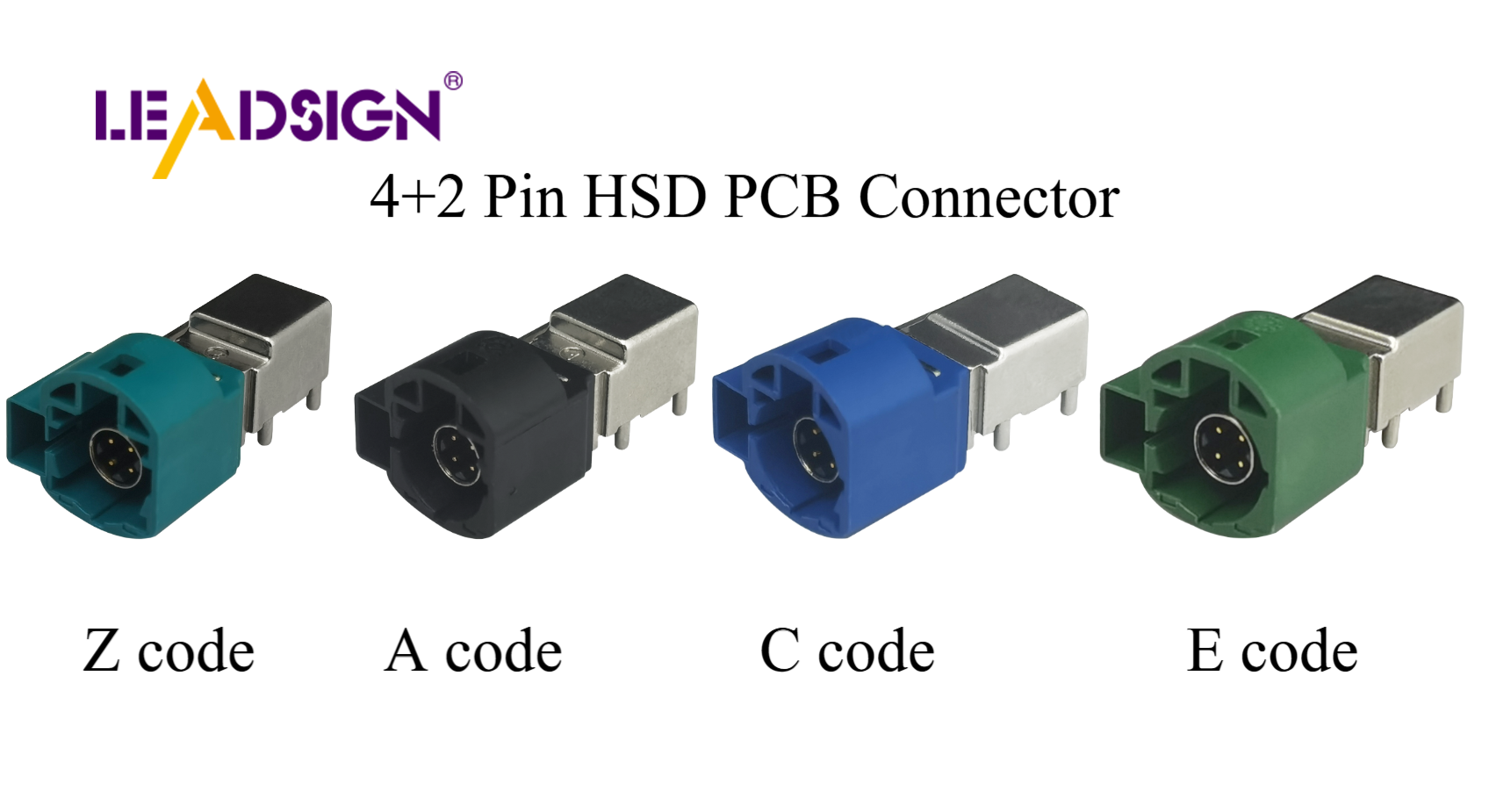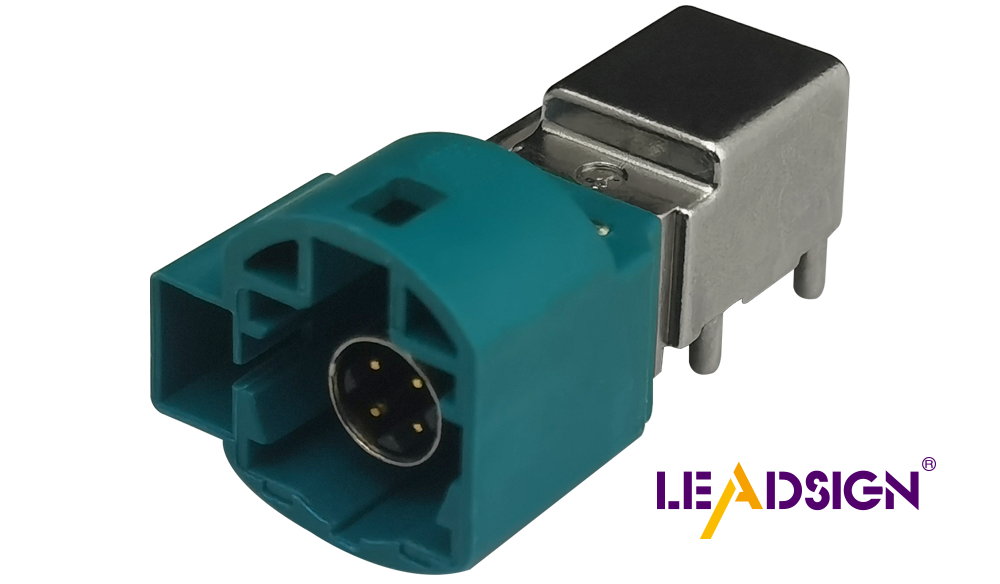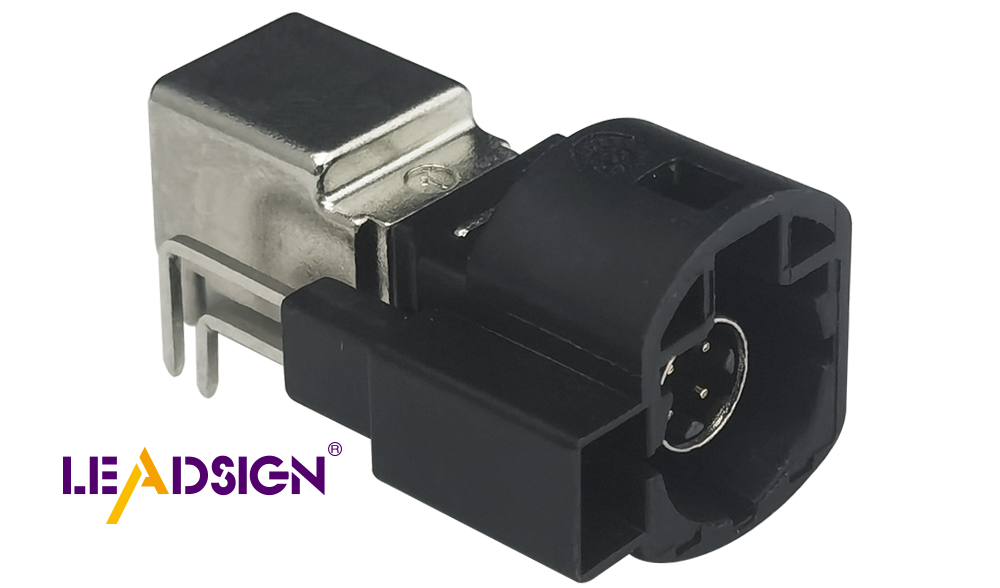Key Tips for Choosing Wire Connectors Automotive Type

Choosing the right automotive plugs and connectors is crucial. They ensure your car's electrical system operates effectively and safely. Poor-quality or incorrect connectors can lead to electrical issues, resulting in costly repairs or safety hazards. High-quality connectors enhance your car's reliability and efficiency. Consider their compatibility, strength, and performance. Making informed choices helps you avoid problems and keeps your vehicle running smoothly.
Key Takeaways
Understand your car's electrical needs by consulting the manual to select compatible connectors that prevent overheating and short circuits.
Choose connectors based on environmental factors; sealed connectors are ideal for wet conditions, while unsealed ones suit dry areas.
Consider the connection method: crimping is generally preferred for automotive applications due to its durability and resistance to moisture.
Select the right materials for connectors: metal for high-power systems and plastic for flexibility and resistance to harsh weather.
Ensure proper sizing and compatibility of connectors to avoid overheating and ensure a secure fit in tight spaces.
Buy from reliable sellers and consult experts to ensure you choose high-quality connectors that meet your car's specific requirements.
Regularly check and maintain your connectors to prolong their lifespan and ensure your car's electrical system operates safely.
Understanding Your Needs for Automotive Plugs and Connectors
Picking the right automotive electrical connectors begins with knowing your needs. Every car has different requirements, so understanding them is key. This helps your car work safely and efficiently. Below are important things to think about when deciding.
Checking Current and Voltage Needs
First, figure out your car's electrical needs. Different systems use different amounts of power. For example, systems like infotainment or ADAS need connectors for high power and data. Using the right connectors stops overheating and short circuits.
Tip: Always read your car's manual for electrical details. This helps you pick connectors that match the needed power levels.
Good options like High Voltage Connectors from Amphenol work well in tough conditions. They are great for cars with advanced systems and high power needs.
Thinking About Environmental Factors
The environment affects how automotive electrical connectors perform. Cars face tough conditions like heat, moisture, and dirt. Picking connectors that handle these keeps them working longer.
For example, Deutsch DT Series Connectors are made for dirty and wet places. Their strong design keeps out damage, making them great for off-road vehicles.
Decide if you need sealed or unsealed connectors. Sealed ones are better for wet areas, while unsealed ones work in dry spaces.
Looking at Extra Features for Connectors
Modern cars need connectors with special features for complex systems. Look for things like strong locks, good cable grips, and coding efficiency. These make connectors last longer and work better.
For instance, HSD Connectors are great for sending high-speed data. They are used in USB, Ethernet, and camera systems. Their design ensures safe and fast data transfer, even in tough spots.
Also, think about the material of the connectors. Plastic ones are light, strong, and resist damage. They work well in harsh conditions and don’t rust.
By thinking about these points, you can choose the best connectors for your car. This careful choice keeps your car systems reliable and efficient.
Connection Methods for Automotive Wiring

Picking the right way to connect wires is important. It helps make sure your car's wiring works well and lasts long. The two main methods are crimping and soldering. Knowing how they differ can help you choose the best one.
Crimping vs. Soldering: Pros and Cons
Crimping and soldering both join wires securely but in different ways. Crimping uses a tool to press a connector onto a wire. Soldering melts solder with heat to bond the wire and connector.
Here’s a simple list of their pros and cons:
Crimping:
Pros:
Strong and durable, great for cars with vibrations.
Blocks moisture, stopping rust and lasting longer.
No heat needed, so it’s safer and quicker.
Trusted in tough jobs like planes and military use.
Cons:
Needs good tools for the best results.
Bad technique can make weak connections.
Soldering:
Pros:
Makes a strong electrical link for good power flow.
Works well for small or detailed wiring jobs.
Cons:
Uses heat, which can harm parts or covers.
Takes more time and doesn’t hold up to shaking.
Lets in moisture, which can cause rust later.
Tip: Crimping is usually better for cars because it’s tough and handles rough conditions.
Tools for Secure Automotive Wiring Connections
Good tools are key for safe and strong wire connections. Whether crimping or soldering, quality tools help avoid problems and make better connections.
Crimping Tools:
Pick tools with settings for different connector sizes.
Good tools press evenly for a tight connection.
Some tools have parts you can swap for various connectors.
Soldering Tools:
Use a soldering iron with adjustable heat to avoid damage.
Choose lead-free solder for safer and greener connections.
A stand and heat-proof mat make the process safer.
Tip: Always check your work after finishing. For crimping, make sure the wire is held tightly. For soldering, the joint should look smooth and shiny.
By learning the benefits of each method and using proper tools, you can make strong and safe wire connections. This keeps your car’s electrical system working well and safely.
Material Choice for Automotive Electrical Connectors
Picking the right material for automotive electrical connectors is important. It helps your car's electrical system work well. The material affects strength, durability, and how it handles tough conditions. Knowing the difference between metal and plastic connectors helps you decide.
Comparing Metal and Plastic Connectors
Metal and plastic connectors have different benefits. Your choice depends on your car's needs and environment.
Metal Connectors:
Metal connectors are strong and last a long time. They carry electricity well, making them great for powerful systems. Many have secure locks like Push-Pull or Thread-Lock. These locks keep connections tight. Metal connectors handle heat and pressure, so they’re good for heavy-duty jobs. They also help stop overheating and lower fire risks.Plastic Connectors:
Plastic connectors are good in rough conditions. They are light, flexible, and resist water and sunlight. These features make them perfect for cars in bad weather. Plastic connectors are easy to install because of their design. But not all plastic connectors are the same. Some are made for tough jobs, while others may not last as long.
Tip: For extreme weather, pick plastic connectors with water and UV resistance. For high heat or pressure, metal connectors are better.
Making Sure Connectors Last
Choosing durable connectors is key for your car. The material you pick affects how long they last and work.
Think About the Environment:
Check where the connectors will be used. For hot, dirty, or wet areas, pick materials that can handle these. Metal connectors are tough and work under stress. Plastic connectors are better for wet or sunny places.Match the Electrical Load:
Connectors must handle your car’s power needs. Metal connectors are best for high-power systems like engines. Plastic connectors are good for lighter systems needing flexibility.Look for Extra Features:
Choose connectors with strong locks or grips. These features keep them secure, even in vibrating cars.
Tip: Check your connectors often for damage. Replace broken ones quickly to avoid bigger problems.
By picking the right material and thinking about conditions, your connectors will last longer. This helps your car’s electrical system stay safe and efficient.
Size and Compatibility in Automotive Wiring

Picking the right size and compatible connectors is very important. Correctly sized connectors help your car work better. They also stop problems like overheating or loose wires. Matching connectors to your car's system is key. Choosing ones that fit tight spaces can make a big difference.
Matching Connectors to Your Vehicle's Electrical System
Every car's electrical system has special needs. Picking connectors that meet these needs is crucial. Some systems need connectors for high power. Others require connectors for sending data.
Tip: Check your car's manual or ask an expert for help.
OEM connectors, like OEM car twin connectors, are made for specific cars. These connectors fit perfectly and work well. Standard connectors might work but may not be as reliable.
When fixing a wiring harness, use connectors like the original ones. This keeps the system working safely and efficiently. Wrong connectors can cause bad connections. This might lead to system failures or safety risks.
Choosing Connectors for Tight Installation Spaces
Modern cars are often small inside, leaving little room for connectors. In these cases, pick connectors made for tight spaces. Small, slim connectors fit well without losing function.
Tip: Use connectors with flexible or angled designs for easier fitting.
Some connectors have snap-in or low-profile designs. These are great for tight spaces and easy to install. Strong materials also help connectors handle heat or shaking in small areas.
By thinking about size and compatibility, you can improve your car's electrical system. Well-matched connectors lower the chance of problems. They also make your car safer and more reliable.
Planning and Getting Automotive Plugs and Connectors
Planning and getting the right plugs and connectors is important. It keeps your car's electrical system working well and safely. Choosing trusted sellers and asking experts for help can make this easier.
Picking Reliable Sellers for Automotive Connectors
Finding a good seller is very important. Reliable sellers give you strong and high-quality connectors. These connectors work well even in tough conditions. Look for sellers with a history of making good products.
Sunkye: Sunkye makes custom connectors for hybrid and electric cars. Their connectors are strong and handle tough conditions well. They are great for many car uses.
Xulian Electronics: Xulian makes connectors using advanced materials and methods. Their products work for engines, lights, and more. They also create special connectors for unique needs.
TE Connectivity: TE Connectivity makes connectors for hard environments. They offer terminal and wire harness connectors that fit many car systems.
Eigen: Eigen makes OEM connectors to improve car safety and efficiency. Their products use advanced technology and meet industry rules.
Tip: Check the seller’s certifications and reviews. This helps you get connectors that fit your car’s needs.
Asking Experts for Help
Experts can help you pick the right connectors. They know how car systems work and can suggest the best products. Asking experts saves time and avoids mistakes.
Why Ask Experts?
They help find connectors that match your car’s system.
They know about new materials and technologies.
Their advice ensures your connectors last long and work safely.
Where to Get Help?
Contact companies like Xulian Electronics for customer and engineering support.
Join online groups where car fans share tips and advice.
Ask local car repair shops or electricians for suggestions.
Tip: Share details about your car’s electrical system with experts. This helps them give better advice.
By buying from trusted sellers and asking experts, you can improve your car’s safety and performance. Good planning helps you choose connectors that last and handle tough conditions.
Picking the right car connectors is important for safety and performance. Knowing your needs and choosing strong materials helps your car work well. Using proper connection methods also keeps the electrical system running smoothly.
Choosing carefully avoids problems like breakdowns and expensive fixes. It also improves how your car performs.
For more help, ask experts or check reliable sources. Their advice can guide you to make smart choices and keep your car in good shape.
FAQ
What materials are used in automotive connectors?
Automotive connectors are made from strong materials for safety. Companies like Sunkye use advanced materials to handle tough conditions. Metals are used for carrying electricity, while plastics resist water, heat, and rust. The material depends on the job, like connecting ignition or fuel systems.
Tip: Pick connectors with high-quality materials to avoid problems.
What are the different types of automotive connectors?
There are many types of automotive connectors for different systems. For example:
Bullet connectors: Easy to use, often in audio systems.
Square four-pin connectors: Common in exterior lights.
High-speed data connectors: Used in cameras and infotainment systems.
Knowing your car’s needs helps you pick the right connector.
How do I choose the right connector for my vehicle?
To pick the right connector, think about these:
System needs: Is it for ignition, fuel, or another system?
Environment: Use sealed ones for wet areas, unsealed for dry.
Compatibility: Make sure it fits your car’s wiring system.
Tip: Check your car manual or ask an expert to avoid mistakes.
Why is size important when selecting automotive connectors?
Size matters for a good connection. Big connectors may not fit tight spaces. Small ones might be loose. Compact designs work well in modern cars with little space.
Tip: Measure the space and check the connector size before buying.
Can I use the same connector for different systems?
No, each system has special needs. For example, fuel systems need connectors for high heat and pressure. Infotainment systems need connectors for data transfer. Using the wrong one can cause problems.
How do I maintain automotive connectors?
Taking care of connectors makes them last longer. Do these steps:
Check them often for damage or wear.
Clean them with a soft brush to remove dirt.
Replace broken ones quickly to avoid issues.
Tip: Use covers to protect connectors from water and dust.
Are there connectors designed for high-speed data transfer?
Yes, some connectors, like HSD connectors, are made for fast data transfer. They are used in USB, Ethernet, and camera systems. These connectors work well even in tough conditions.
What tools do I need for installing automotive connectors?
The tools depend on how you connect wires:
Crimping tools: For strong, shake-proof connections.
Soldering tools: For detailed wiring that needs precision.
Tip: Use good tools to make secure connections.
Where can I buy reliable automotive connectors?
You can buy connectors from trusted brands like Sunkye, TE Connectivity, and Xulian Electronics. These companies make strong, high-quality products. Always check reviews and certifications before buying.
Can I install automotive connectors myself?
Yes, you can if you have the right tools and know-how. But for complex systems like ignition or fuel, it’s better to get professional help.
See Also
Why FAKRA Connectors Matter in Automotive Technology
Benefits of FAKRA PCB Connectors for Vehicles
Significance of Fakra Connectors in Automotive Sector

